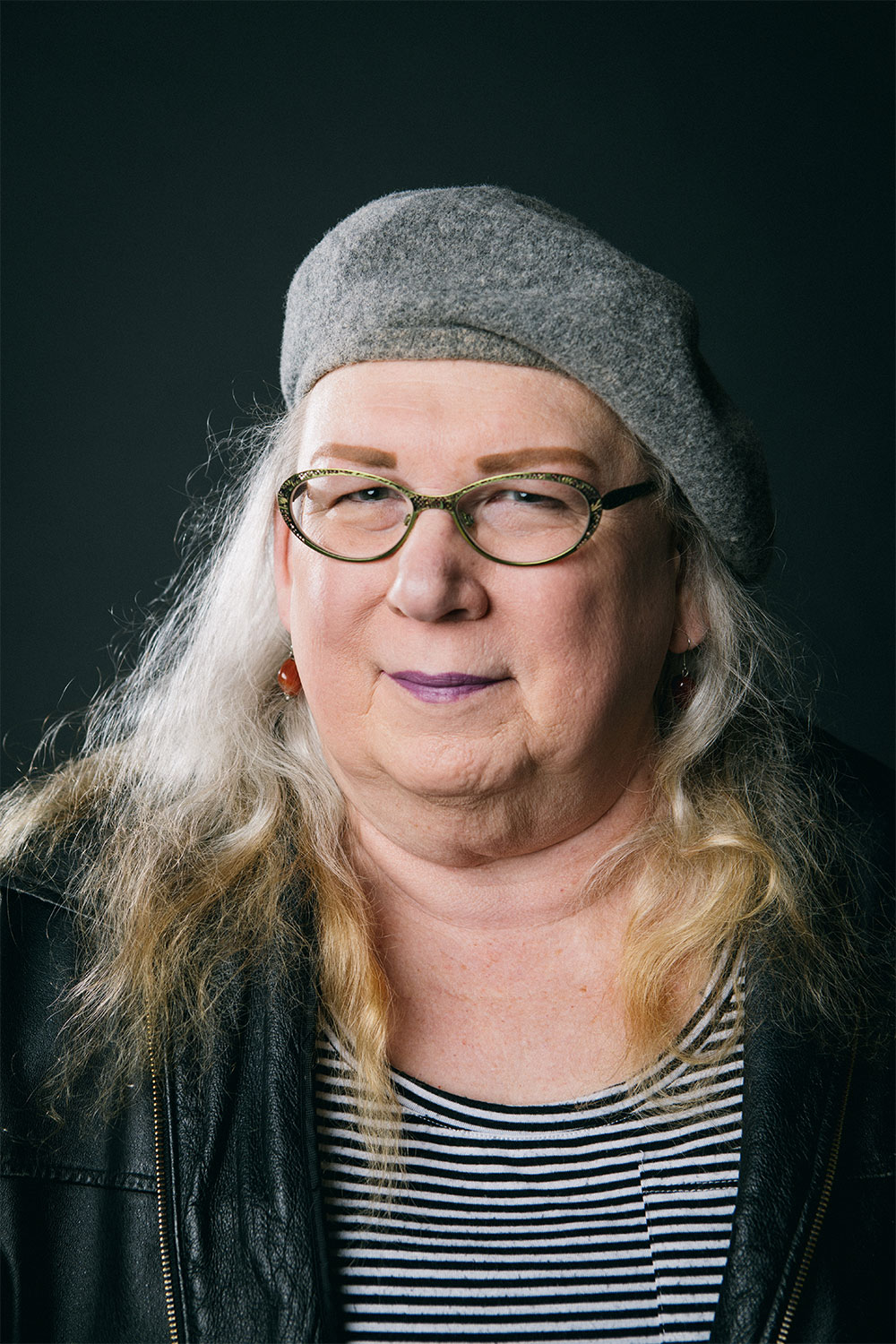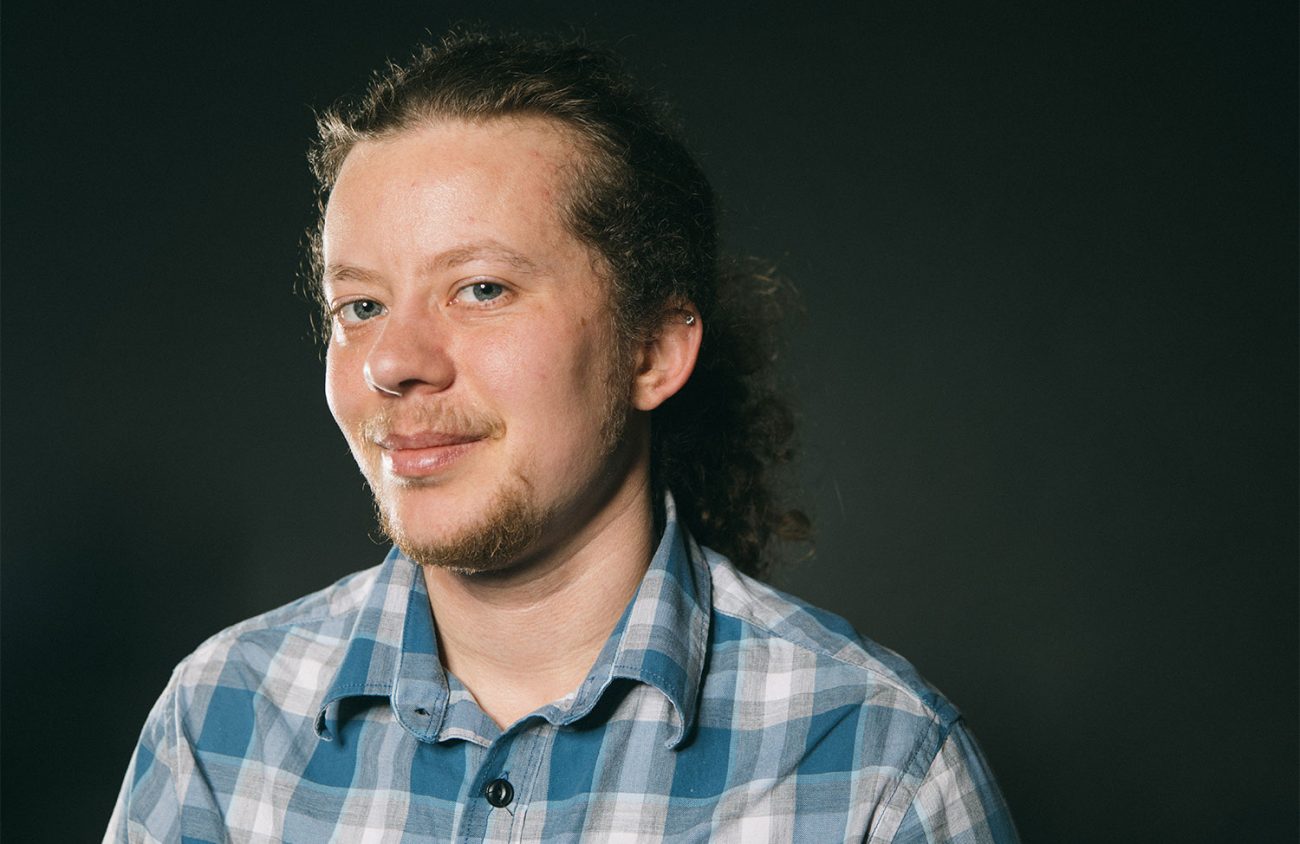On the last Wednesday of every month, in the back corner of Falling Sky Pour House and Delicatessen in Eugene, members of Trans*Ponder — an education and advocacy nonprofit in Eugene that serves trans- and gender-diverse people — gather together to talk, drink and eat at the end of a long farm-style table beneath the soft glow of string lights.
Half an hour into their time together, a representative from HIV Alliance, a prevention and support organization, joins them carrying a cooler of needles, syringes and sharps kits for its needle exchange for hormone injectors.
Trans-identified people experience high rates of job instability, unemployment, poverty and discrimination in health care, making it challenging to access necessary medical treatment, including basic supplies like needles for injecting hormones. To ease this problem, HIV Alliance provides clean needles, safe disposal of used needles and HIV testing to community members in Eugene. In 2016 the group introduced a needle exchange program.
Used needles that are not properly disposed of risk spreading HIV and AIDS. For a demographic that is 49 percent more likely to be living with these diseases, according to the United Nations program on HIV and AIDS, access to clean needles for people who self-administer hormones is crucial.
Enlarge

Rebecca Thompson, a trans-identified military veteran who lives in Eugene, has been disposing of her needles through HIV Alliance for three years. She says that even though needles are over-the-counter purchases in Oregon, pharmacists are often uneducated when it comes to hormone injection and the types and sizes of needles to give patients.
Thompson says the needles she received from the Veterans Affairs office are “on my shelf, and I’ll probably give them away because they’re just not usable. I didn’t want to fight with them about the appropriate sizes, so I gave up.”
People who inject estrogen, like Thompson, typically inject very small amounts of the hormone, from 0.2 to 0.5 milliliters, but pharmacies try to give patients 3-milliliter syringes, making it extremely difficult to manage and measure doses. Pharmacists also give out needles that are too big, such as 1-inch needles, when patients need needles that are five-eighths of an inch, Thompson says.
According to Shane Feinstein, a transman and student at the University of Oregon who is a member of Trans*Ponder, even when doctors write notes for the needles, pharmacists are still uncertain about what kinds of needles to provide. Sometimes he won’t realize until he’s home that the pharmacists gave him the wrong size needles or syringes.
“They’d get all get confused or give you the wrong thing, or you get home, ‘Wait this is totally not the right syringe; this is not the right needle,’” he says of the pharmacists, adding that this is the pharmacists’ job and they’re supposed to know this information.
Amanda McCluskey, HIV Alliance’s program director, founded the monthly needle exchange program for hormone injectors in response to listening sessions at the Wayward Lamb — a queer pub and event space, which closed early last year.
The trans needle exchange program provides the kinds and sizes of needles that trans folks need without the stress of arguing with pharmacists about sizes and types of needles. Volunteers from HIV Alliance bring 18-, 22-, 23- and 25- gauge needles and 1-, 2- and 3-cubic centimeter (cc) syringes.
In the first couple months of the program, it was taking in thousands of needles for disposal and only giving out 50 to 100 clean needles each month. Many people didn’t know where to dispose of needles, so they began to pile up.
“I was like ‘Oh great, because I have this whole stack of needles that I don’t know what to do with,’” Feinstein says.
HIV Alliance tries to meet this need through the needle exchange, but it also provides HIV prevention services like free HIV testing on Mondays from 3 to 5 pm, trans-inclusive safe-sex education and pre-exposure prophylaxis, or PrEP, a daily HIV-prevention medication.
Since its creation, the exchange has seen a better balance in the number of needles being given out and being returned. In the past year (July 2017 to June 2018), HIV Alliance disposed of 1,772 syringes and gave out 2,265 through the trans needle exchange program.
The exchange has also moved locations from the Wayward Lamb, an openly queer space, to Falling Sky.
Falling Sky cofounder Rob Cohen said he hasn’t received any negative feedback from customers about hosting the event in the Pour House and Delicatessen.
“Our culture is pretty entrenched. I don’t think it would be a big surprise to our customers,” he says. “There’s a benefit to us. We get to bring in new people who might not come into Falling Sky, and people get to see us aligning with meaningful groups.”
Finding a location was just one barrier Trans*Ponder and HIV Alliance faced.
Because of a ban on the use of federal money to buy needles, finding funding for needle exchanges can be difficult, even when the needles aren’t being used for illicit drug use. While federal funding can be used to purchase prevention supplies like sharp kits and testing, HIV Alliance has to write grants to be able to purchase needles.
“Of course, that’s what we need most of,” McCluskey says.
And it’s what trans people need. Thompson and Feinstein say their experiences with health care and pharmacies are mild compared to what other trans-identified people experience. “For people who haven’t had the resources I have and are living on the streets and stuff like that, it increases the problem multi-fold,” Thompson says.
Besides facing barriers to health care, many members of the trans community carry heightened levels of stress and fear. Trans women and trans women of color specifically face some of the highest rates of hate crimes and hate-crime murders.
“Walking through the world with that sort of a safety issue on your back can be really difficult and can make it really hard to access all of the things you would like to, so we try to make it as easy as possible for folks to access our services,” McCluskey says.
Still, she worries about who doesn’t have access to the needle exchange program, either because people haven’t heard about the services or can’t make it to the events or into the office. Trans communities are often made invisible in health care and are thus hard populations to reach.
HIV Alliance’s partnership with Trans*Ponder and Falling Sky has created something more than just a needle exchange; the event has become a community space of support and a place where your needs, both medical and emotional, are known and met, according to Thompson.
“It’s nice to have people who, if nothing else, are friends and allies,” she says. “That’s one of those intangibles; it’s not directly related to needle exchange but it helps bolster a sense of safety, belonging; there are other people who have your back.”
HIV Alliance’s office is at 1195A City View Street. You can find more info at hivalliance.org or call 541-342-1150. Find Trans*Ponder at transponder.community, info@transponder.community or 508-443-6337. This story was developed as part of the Catalyst Journalism Project at the UO School of Journalism and Communication. Catalyst brings together investigative reporting and solutions journalism to spark action and response to Oregon’s most perplexing issues. To learn more visit journalism.uoregon.edu/catalystor follow the project on Twitter @UO_catalyst.
